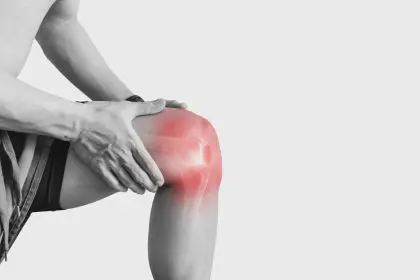Endometriosis affects approximately one in ten individuals with female reproductive organs, causing excruciating pain and significantly diminishing quality of life. For many patients, the path to diagnosis becomes complicated by challenges that extend beyond physical symptoms, particularly when previous trauma enters the equation. Recent research from Yale University illuminates the relationship between traumatic experiences and endometriosis development, highlighting the critical need for trauma-informed approaches in medical settings.
The challenging road to diagnosis
The endometriosis journey often begins years before an official diagnosis, with patients experiencing severe abdominal pain and other debilitating symptoms that disrupt daily functioning. Unfortunately, many encounter healthcare providers who dismiss their concerns or misattribute their symptoms to other conditions without thoroughly investigating the possibility of endometriosis.
These dismissive medical encounters can become particularly harmful for individuals with trauma histories. When healthcare providers fail to consider past experiences during examination and treatment, what should be healing interactions can instead become sources of additional distress. Physical examinations, invasive procedures, and even routine appointments can trigger traumatic memories, compounding the already significant challenges of living with chronic pain.
Groundbreaking findings from Yale
The comprehensive Yale study analyzed data from over 8,000 individuals with endometriosis alongside approximately 250,000 control participants, revealing striking correlations between traumatic life experiences and this chronic condition. Researchers found that endometriosis patients demonstrated higher likelihood of having experienced emotional, physical, or sexual trauma compared to those without the condition.
While the study does not establish direct causation, it provides substantial evidence of a relationship that demands further investigation. The research suggests that stress associated with traumatic experiences potentially contributes to chronic inflammation—a known factor in endometriosis development and progression.
Understanding endometriosis fundamentals
Endometriosis occurs when tissue similar to the uterine lining grows outside the womb, affecting various organs throughout the body including the bladder, bowel, and in rare cases, even the lungs. This misplaced tissue responds to hormonal changes during menstrual cycles just as the uterine lining does, but without the ability to exit the body, resulting in inflammation, scarring, and severe pain.
Despite affecting approximately 10% of reproductive-age individuals with female organs, endometriosis remains frequently misunderstood and misdiagnosed. Many patients wait seven to ten years for accurate diagnosis due to persistent myths surrounding the disease and symptoms that overlap with other conditions.
The biological pathways between trauma and physical health
The Yale research supports growing evidence that psychological stress and trauma can significantly influence physical health outcomes. The study identifies several potential biological mechanisms connecting traumatic experiences to endometriosis development:
Chronic inflammation triggered by ongoing stress responses may create an environment conducive to endometriosis growth.
Hormonal dysregulation resulting from trauma exposure can potentially affect reproductive tissues and immune function.
Altered immune system responses following traumatic experiences may impair the body’s ability to clear misplaced endometrial tissue.
Hypothalamic-pituitary-adrenal axis dysfunction, common in trauma survivors, may contribute to inflammatory conditions throughout the body.
Early life adversity and long-term health consequences
Perhaps most concerning, the Yale study revealed significant connections between childhood maltreatment and increased likelihood of developing endometriosis later in life. Individuals with endometriosis showed greater susceptibility to post-traumatic stress disorder, suggesting that early-life stressors could contribute to disease development through mechanisms including immune system disruption and hormonal imbalances.
These findings align with broader research on adverse childhood experiences (ACEs) and their long-term health impacts. The evidence increasingly suggests that childhood trauma creates physiological changes that potentially increase vulnerability to various chronic conditions, with endometriosis potentially joining this list.
Transforming care through trauma-informed approaches
Given these revelations, healthcare providers must adopt trauma-informed approaches when diagnosing and treating endometriosis. Researchers emphasize that the diagnostic process itself can prove exceptionally stressful, particularly for those with trauma histories. Invasive examinations can reactivate traumatic memories, creating additional psychological distress that complicates both diagnosis and treatment.
A trauma-informed approach incorporates several essential elements:
Recognition of trauma prevalence among endometriosis patients and understanding of how past experiences might affect current healthcare interactions.
Creation of safe clinical environments where patients feel respected, heard, and in control of their bodies during examinations and procedures.
Comprehensive assessment that includes psychosocial history alongside physical symptoms, acknowledging that mind-body connections influence both disease progression and treatment outcomes.
Integration of psychological support and stress management strategies alongside conventional medical treatments to address the full spectrum of patient needs.
Clear communication and patient education that empowers individuals to understand their condition and actively participate in treatment decisions.
Advancing patient experiences through comprehensive care
Improving experiences for endometriosis patients with trauma histories requires systemic changes in healthcare delivery. Medical professionals need specific training to recognize trauma indicators and adapt their approaches accordingly. Understanding that certain examination positions, unexpected touch, or dismissive language can trigger profound distress allows providers to modify their techniques to maintain patient comfort and dignity.
A holistic treatment approach proves particularly valuable, integrating pain management strategies, psychological support, and hormonal therapies tailored to individual needs. When healthcare providers recognize and address the interconnection between past trauma and current physical symptoms, treatment outcomes typically improve.
The research emphasizes that effective endometriosis care must extend beyond managing physical symptoms to address the whole person, including psychological well-being and past experiences that shape current health. This perspective represents a significant shift from traditional approaches that have often treated endometriosis as purely a reproductive condition.
Hope through understanding and awareness
The growing recognition of connections between trauma and endometriosis offers hope for improved care. As medical professionals gain deeper understanding of this relationship, they can develop more sensitive and effective treatment protocols that address both physical symptoms and psychological needs.
For patients navigating endometriosis while processing trauma histories, this research validates experiences many have intuitively understood but struggled to have acknowledged within medical settings. The validation itself can prove therapeutic, reducing the isolation many feel when their symptoms are dismissed or minimized.
The Yale University study fundamentally highlights the importance of recognizing trauma’s impact on physical health while calling for transformation in how medical professionals approach endometriosis care. By fostering trauma-informed healthcare environments, we can potentially improve experiences for countless patients while enhancing treatment effectiveness.
As research in this area continues to evolve, the hope remains that increased awareness of trauma-endometriosis connections will lead to earlier diagnosis, more compassionate care, and ultimately better quality of life for the millions affected by this challenging condition worldwide.















